

Sunday, April 26, 2009
Tuesday, April 14, 2009
Bengali New Year 1416 celebration!
Ramna Area:

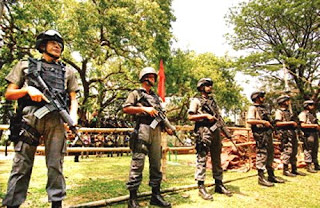
high security




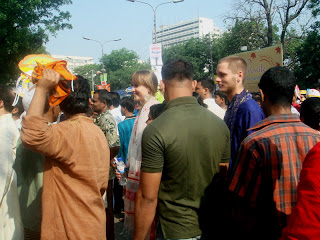

item new this year



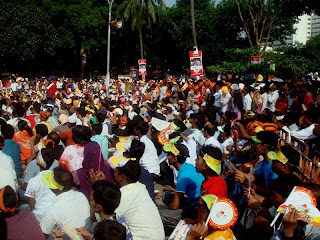




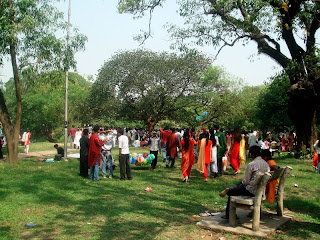




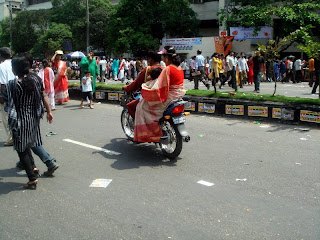
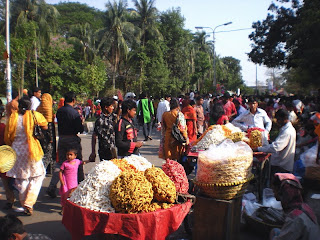

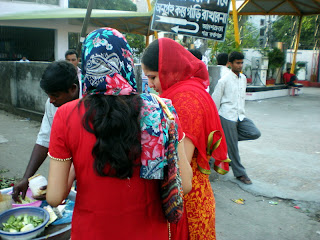



artists and photographers line up for a shot




panta, ilish, vorta with chili in malsa (earthen pot): Known as poor man's meal- is in high demand in mela by the wealthy roving groups.
Dhanmandi Area: activities












high security






item new this year




















artists and photographers line up for a shot




panta, ilish, vorta with chili in malsa (earthen pot): Known as poor man's meal- is in high demand in mela by the wealthy roving groups.
Dhanmandi Area: activities










Pahela Baishakh, the largest cultural festival of the Bengalis to welcome the Bengali new year celebrated today with enthusiasm amid stepped-up security across the country.
Celebrations of 'Pahela Baishak' started from the time of Mughal Emperor Akbar's reign. Agricultural taxes were collected according to the Arabic Hijri (hejira) lunar calendar. But, as the calendar would not coincide with the local harvest, the farmers were hard-pressed to pay taxes out of season. In order to streamline tax collection Akbar ordered a reform of the calendar. Accordingly, Fatehullah Shirazi, a renowned scholar and astronomer, formulated the Bangla Shon on the basis of the lunar Hijri and local regional calendars. The new calendar also known as Fasli Shon (agricultural year) was introduced in March 1584, but was dated from Akbar's ascension to the throne in 1556. (The Bengali world shon, sal and tarikh are Arabic and Persian).
Since 1988, Bangladesh following a modified calculation on the luni-solar Bangla calendar prepared by the Bangla Academy committee headed by Dr. Muhammad Shahidullah in 1963, to match the Gregorian system. This year came to be known as ‘Bangabdo’ (Bengali year).
It was customary for traders to clear up all dues on the last day of previous year. At the dawn of first day of new year, the traders/landlords would open 'haalkhata' (accounts book) and entertain their customers and tenants with sweets. To mark the occasion there used to be fairs and festivities. In due course the occasion became part of domestic and social life, and turned into a day of jollity.
In Bangladesh, the celebrations of Pahela Baishak started in 1965 from a national consciousness by ‘Chayanat’ a noted cultural group at Ramna Park with Tagore's song welcoming the month as a symbol of upholding Bengali culture. After 1972, it became a national festival. The young communities of the city dwellers in Dhaka on Pahela Baishakh get up early in the morning to attend functions in Ramna. Young women wear white saris with red border/motif adorn with bangles and flowers and young men wear pajamas, panjabi and sandal. They move in groups enjoy eating- panta (cooked rice socked in water), Ilish (hilsha fry), vorta (smashed veg) with chili in a malsha (earthen pan) in roadside stalls in mela.
Celebrations of 'Pahela Baishak' started from the time of Mughal Emperor Akbar's reign. Agricultural taxes were collected according to the Arabic Hijri (hejira) lunar calendar. But, as the calendar would not coincide with the local harvest, the farmers were hard-pressed to pay taxes out of season. In order to streamline tax collection Akbar ordered a reform of the calendar. Accordingly, Fatehullah Shirazi, a renowned scholar and astronomer, formulated the Bangla Shon on the basis of the lunar Hijri and local regional calendars. The new calendar also known as Fasli Shon (agricultural year) was introduced in March 1584, but was dated from Akbar's ascension to the throne in 1556. (The Bengali world shon, sal and tarikh are Arabic and Persian).
Since 1988, Bangladesh following a modified calculation on the luni-solar Bangla calendar prepared by the Bangla Academy committee headed by Dr. Muhammad Shahidullah in 1963, to match the Gregorian system. This year came to be known as ‘Bangabdo’ (Bengali year).
It was customary for traders to clear up all dues on the last day of previous year. At the dawn of first day of new year, the traders/landlords would open 'haalkhata' (accounts book) and entertain their customers and tenants with sweets. To mark the occasion there used to be fairs and festivities. In due course the occasion became part of domestic and social life, and turned into a day of jollity.
In Bangladesh, the celebrations of Pahela Baishak started in 1965 from a national consciousness by ‘Chayanat’ a noted cultural group at Ramna Park with Tagore's song welcoming the month as a symbol of upholding Bengali culture. After 1972, it became a national festival. The young communities of the city dwellers in Dhaka on Pahela Baishakh get up early in the morning to attend functions in Ramna. Young women wear white saris with red border/motif adorn with bangles and flowers and young men wear pajamas, panjabi and sandal. They move in groups enjoy eating- panta (cooked rice socked in water), Ilish (hilsha fry), vorta (smashed veg) with chili in a malsha (earthen pan) in roadside stalls in mela.
The Institutes of Fine Arts bring out alternative precession ‘mongol shobhajatra’ from its campus with large figures and masks. Daylong cultural programmes and folk song takes place at different area and parks.
In old days fairs in villages were held for couple of days on such occasion where traders used to come from distant places to sale goods and handicraft etc. The fair had share of entertainment, folk song, puppet dance, bull fight etc. patronized by the big land lords and Zamindars. Many things have changed with the passage of time.
Three ethnic groups in the hill tracts also celebrate their new year in a programme known as ‘Baisabi’ in their own tradition and custom. The Tripuras celebrate 'Baisu', the Marmas 'Sangrai' and the Chakmas 'Biju' for a couple of days, marking the end of a year and the advent of another. The Bangla speaking people of West Bengal and Tripura in India and a large section of Hindu community in Bangladesh, however, celebrate new year on the day based on their religious principle. In the collective festivals, they tend to give prominence to 'religious traditions'.
Three ethnic groups in the hill tracts also celebrate their new year in a programme known as ‘Baisabi’ in their own tradition and custom. The Tripuras celebrate 'Baisu', the Marmas 'Sangrai' and the Chakmas 'Biju' for a couple of days, marking the end of a year and the advent of another. The Bangla speaking people of West Bengal and Tripura in India and a large section of Hindu community in Bangladesh, however, celebrate new year on the day based on their religious principle. In the collective festivals, they tend to give prominence to 'religious traditions'.
Subscribe to:
Comments (Atom)
































